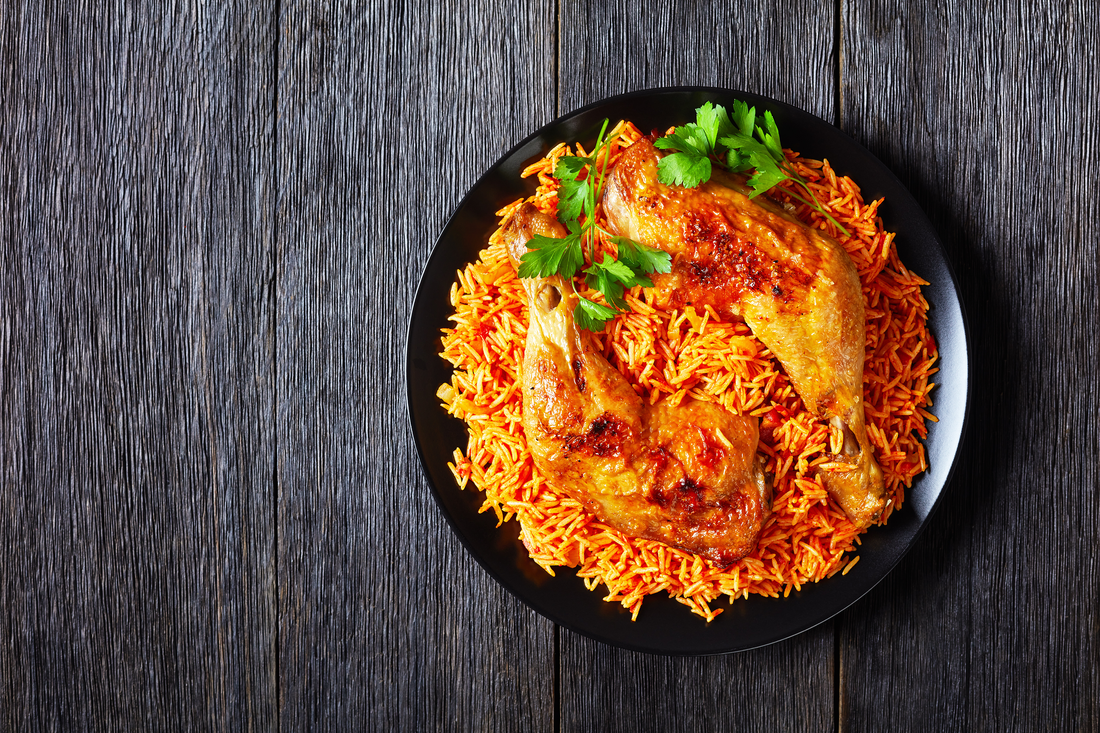
Cooking Up Controversy: The Story Behind the Jollof Wars
In the world of culinary delights, few dishes can inspire as much passion and debate as Jollof rice. This beloved West African dish, with its vibrant blend of rice, tomatoes, spices, and often a choice of protein, is not just a meal; it's a cultural icon. But it's also the source of one of the most deliciously controversial debates in the culinary world: the Jollof Wars.
The Basics of Jollof Rice
Before diving into the Jollof Wars, let's get acquainted with the star of the show: Jollof rice. This delectable dish is believed to have originated in the Senegambia region of West Africa, and it's now a staple in many West African countries, including Nigeria, Ghana, Senegal, and Sierra Leone.
The fundamental ingredients are simple: rice, tomatoes, onions, peppers, and a blend of spices. Variations abound, and what sets Jollof rice apart is the unique twist each region or family adds to the recipe. The result is a spectrum of flavors and styles that can vary greatly, from smoky and spicy to milder and sweeter.
The Jollof Wars Begin
Now, let's turn our attention to the heart of the matter: the Jollof Wars. This playful term refers to the passionate rivalry between West African nations over who makes the best Jollof rice. The epicenter of this debate often revolves around Nigeria and Ghana, two countries known for their culinary prowess.
The Jollof Wars are more than just a culinary competition; they're a testament to the deep cultural connections that food can forge. They reflect the pride and identity that people attach to their national dishes. But what exactly is at the core of this controversy?
Nigerian Jollof vs. Ghanaian Jollof
At the heart of the Jollof Wars are two main contenders: Nigerian Jollof and Ghanaian Jollof. Both have their unique characteristics and passionate fan bases.
Nigerian Jollof: Nigerian Jollof is often described as bold and spicy, with a rich, smoky flavor. It typically includes a variety of spices, including cayenne pepper, thyme, and curry, as well as a choice of protein like chicken, beef, or goat. Nigerians take great pride in their Jollof rice, and it's a centerpiece of celebrations and gatherings.
Ghanaian Jollof: On the other side of the debate, we have Ghanaian Jollof. Ghana's take on this beloved dish tends to be milder and slightly sweeter. The use of aromatic herbs like bay leaves and nutmeg is common, giving Ghanaian Jollof its distinct flavor profile. Some argue that its simplicity allows the natural flavors to shine through.
The Diplomacy of Jollof
The Jollof Wars may sound like a serious battle, but they're often filled with laughter, camaraderie, and a sense of unity. In recent years, various Jollof festivals and cook-offs have sprung up, providing a platform for people to showcase their culinary skills and celebrate their cultural heritage.
These events, like the Jollof Festival in Accra, Ghana, or the Jollof Rice Festival in Washington, D.C., foster cultural exchange and diplomacy through food. They emphasize that the Jollof Wars are less about declaring a winner and more about celebrating the diversity and unity of West Africa.
Beyond the Wars: The Global Spread of Jollof
While the Jollof Wars have brought West African nations into the culinary spotlight, they've also played a significant role in spreading the love for Jollof rice around the world. With the African diaspora, Jollof has found its way onto the tables of countless families and restaurants in Europe, North America, and beyond.
In places like London, New York, and Paris, you can now find Jollof rice on the menu alongside other international dishes. This global popularity has led to creative fusion variations, like Jollof burgers and Jollof sushi, where traditional West African flavors meet contemporary cuisine.
The Jollof Legacy
As we explore the playful rivalry of the Jollof Wars, it's essential to remember that beneath the banter lies a deep appreciation for the cultural and culinary richness of West Africa. Jollof rice is more than just a meal; it's a symbol of unity, heritage, and the enduring power of food to bring people together.
So, the next time you savor a plate of Jollof rice, whether it's Nigerian, Ghanaian, Senegalese, or your unique family recipe, remember that you're partaking in a centuries-old tradition of sharing not just a meal, but a piece of history and culture.
As we continue to celebrate the Jollof Wars, let's also embrace the bonds they create and the joy they bring to our tables. After all, when it comes to Jollof, there are no losers—only winners in the world of flavor, culture, and unity.
In Conclusion
The Jollof Wars are a delightful culinary phenomenon that showcases the vibrant diversity of West African cuisine. Whether you're Team Nigerian, Team Ghanaian, or simply a lover of all things Jollof, there's no denying that this dish has a special place in the hearts and palates of many. So, let the debate rage on, but may it always be seasoned with a generous helping of laughter, love, and unity.

